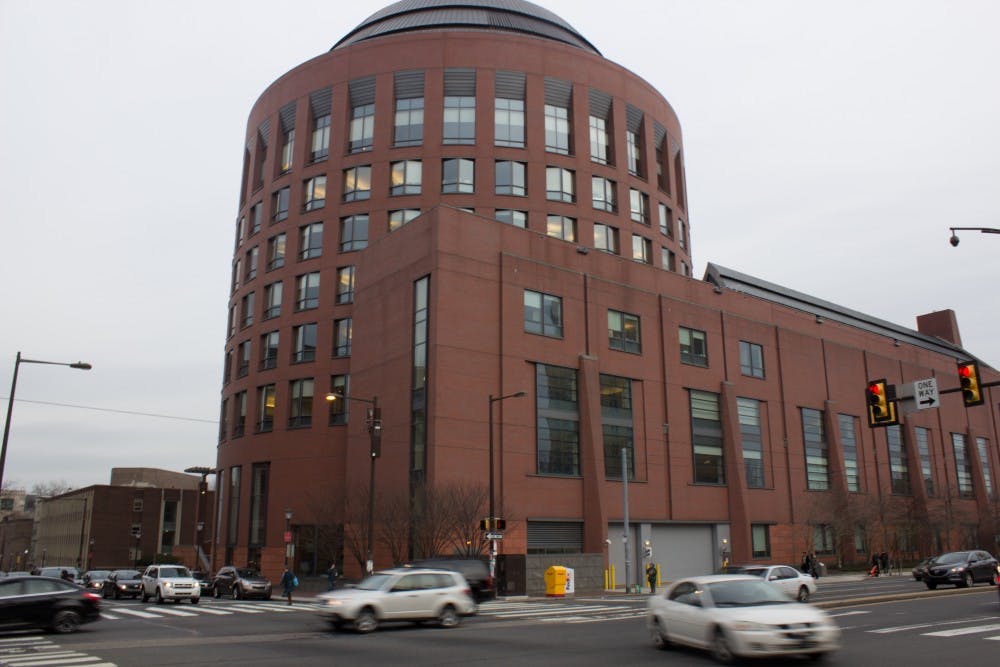
During the summer, Penn is home to several programs like Penn GEMS, for female high school students interested in STEM, and the Sabermetric-focused Wharton Moneyball Academy
Credit: Guyrandy Jean-Gilles |Photo EditorWhile Locust Walk is less crowded during the summer months, Penn’s campus is far from empty. Along with the many students and faculty who remain at Penn working, taking classes or doing research, some students from other schools call Penn home for the summer.
“I was actually surprised by how much nature was integrated into the campus,” rising Dartmouth College sophomore John Fitz-Henley said. For Fitz-Henley, coming from Hanover, NH, (population 11,260, not counting Dartmouth’s 6,000 student population), Penn’s urban environment was something of an adjustment — though not as much as he’d expected.
“Just because it was in a city, I sort of expected it to be very stereotypical, lots of buildings,” he said. “But I was pleasantly surprised to see that there was lots of green space.”
Fitz-Henley is a member of the SUMR program, a program created by the Wharton School and the Leonard Davis Institute of Health Economics to provide research opportunities for undergraduate students interested in health services. Though some SUMR scholars are Penn students, many attend other schools.
In some cases, non-Penn students may face difficulties. High school students arrive at Penn for the 23 summer programs offered by the University, which range from programs like Penn GEMS for female high-school students interested in STEM, to the Sabermetrics-focused Wharton Moneyball Academy, and they face a significant adjustment.
For many of these students, this may be their first time alone in a college environment. To help students adjust, the pre-college programs provide housing in the Quadrangle or one of the high rises, often with residential teaching assistants, or RTAs, who live with the students and provide the guidance that an RA or GA would provide during the school year.
But undergraduates from other schools at Penn for the summer may not be so lucky in finding housing.
“My experience was miserable, actually,” rising University of Dallas junior Joseph Pecha said. Pecha is also a participant in Wharton’s SUMR program, which does not provide housing for its participants. Undergraduates can rent rooms in one of the high rises, but some choose to — or are forced to by necessity — find accommodations off-campus.
Pecha said that he wished the school had done more to help with his housing search.
“I didn’t really get all the help I was expecting from the program,” he said. “I think they could do a lot better of a job of helping students not from Penn find housing — especially because [we] can’t really see the apartments first-hand.”
Fellow SUMR scholar Fitz-Henley is staying at a fraternity house this summer, which he found through a high school friend; Pecha eventually managed to get an apartment near campus with the help of SUMR — in a manner of speaking.
“When I finally arrived, they put me in contact with [an LDI assistant], and she messaged a bunch of her sorority sisters asking if they knew of any apartments to let,” he said. “And that’s the only reason I found anything.”
The Daily Pennsylvanian is an independent, student-run newspaper. Please consider making a donation to support the coverage that shapes the University. Your generosity ensures a future of strong journalism at Penn.
DonatePlease note All comments are eligible for publication in The Daily Pennsylvanian.







